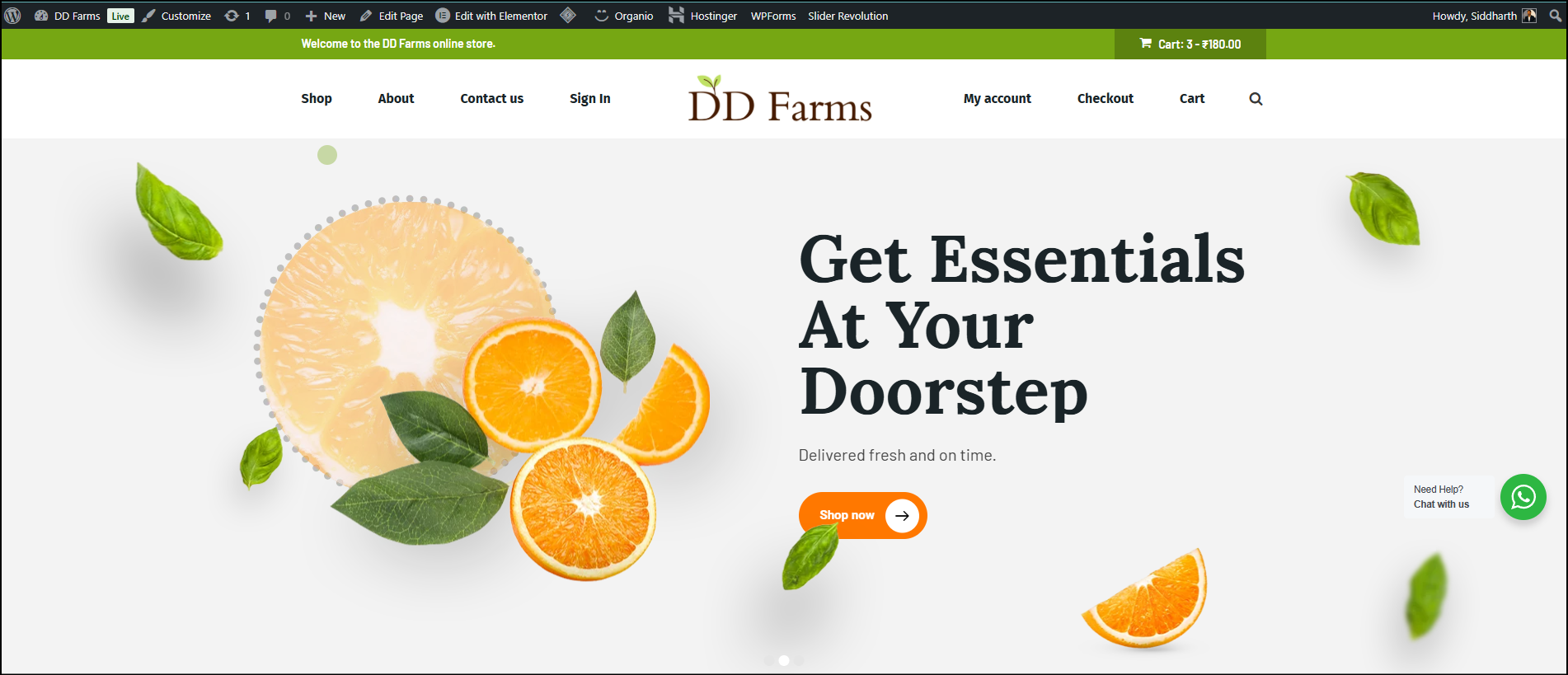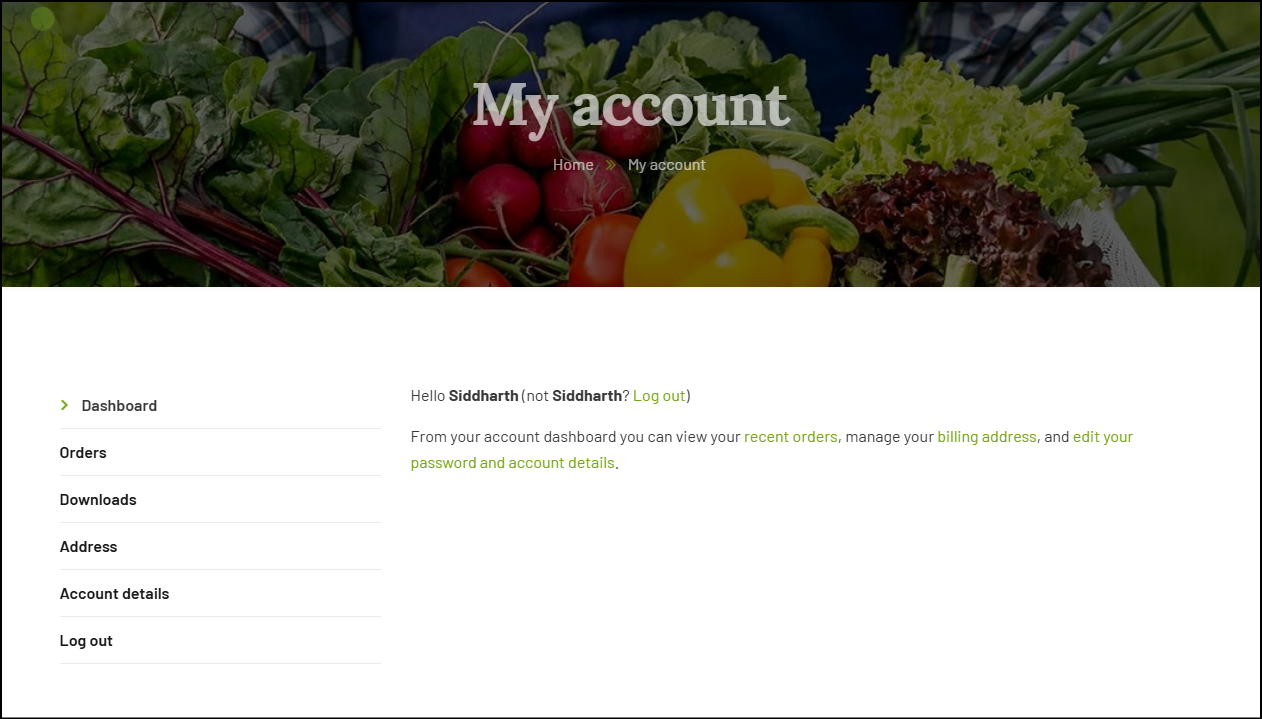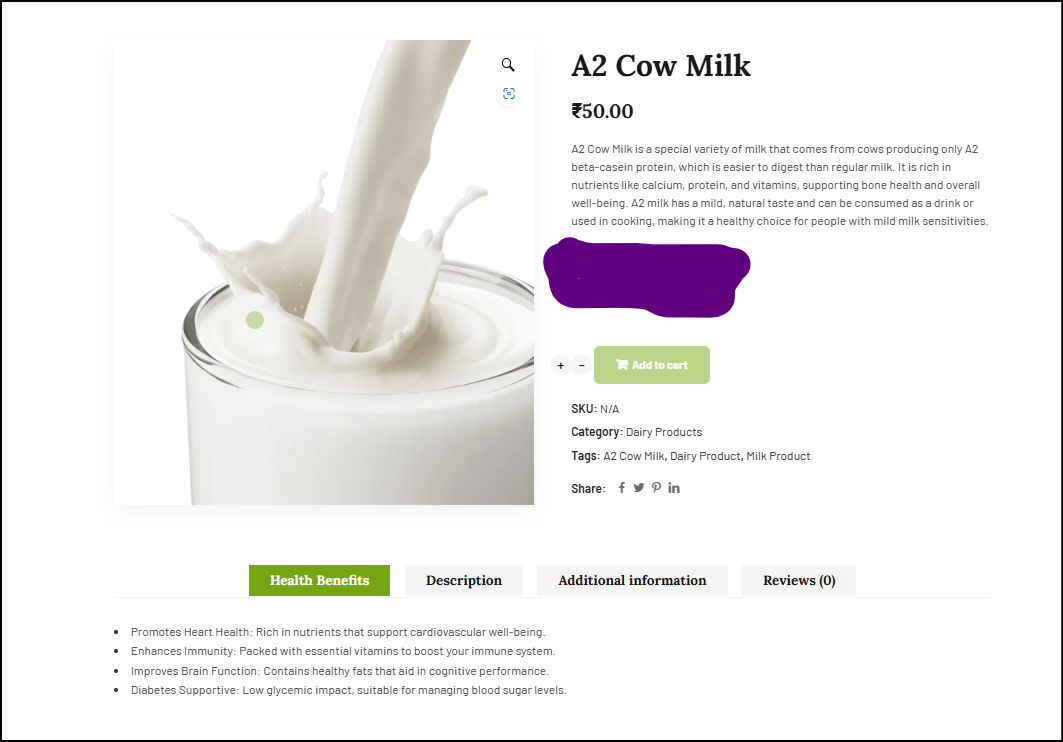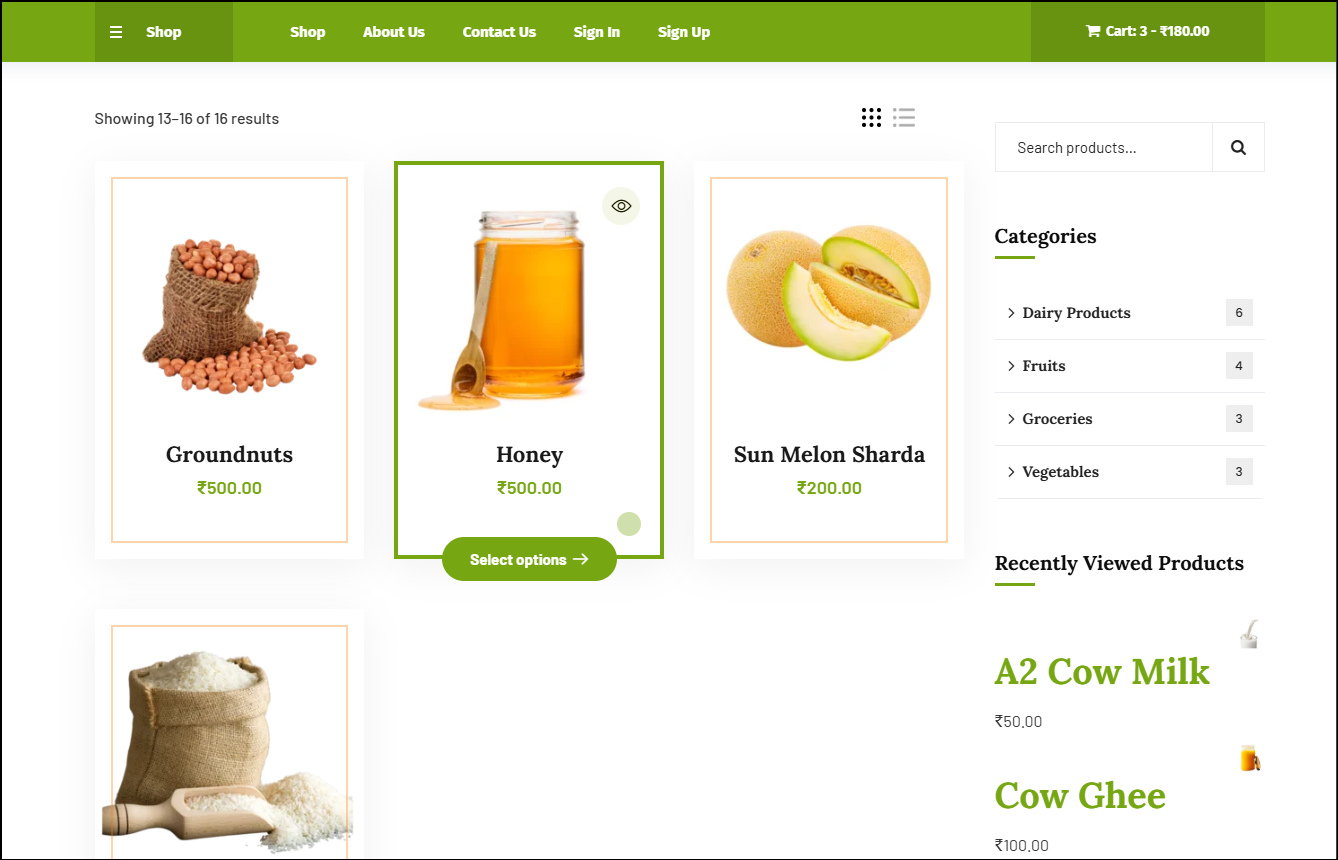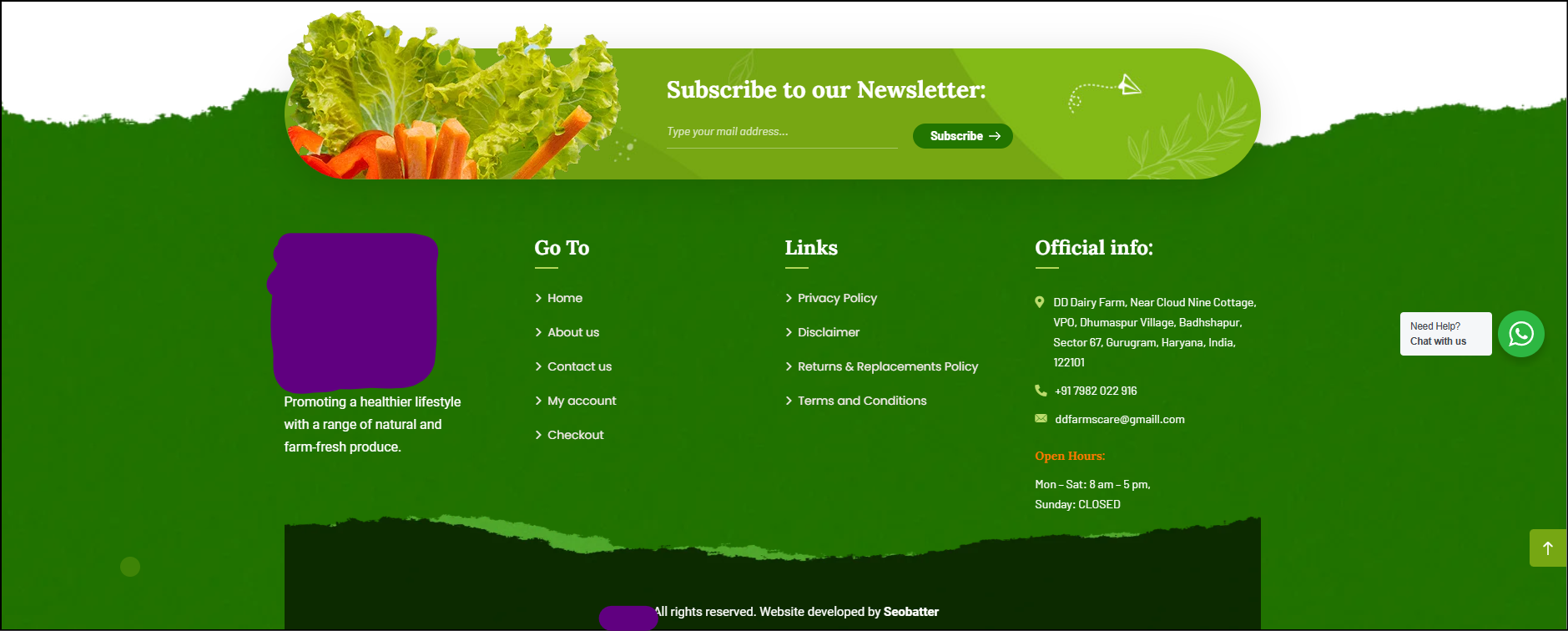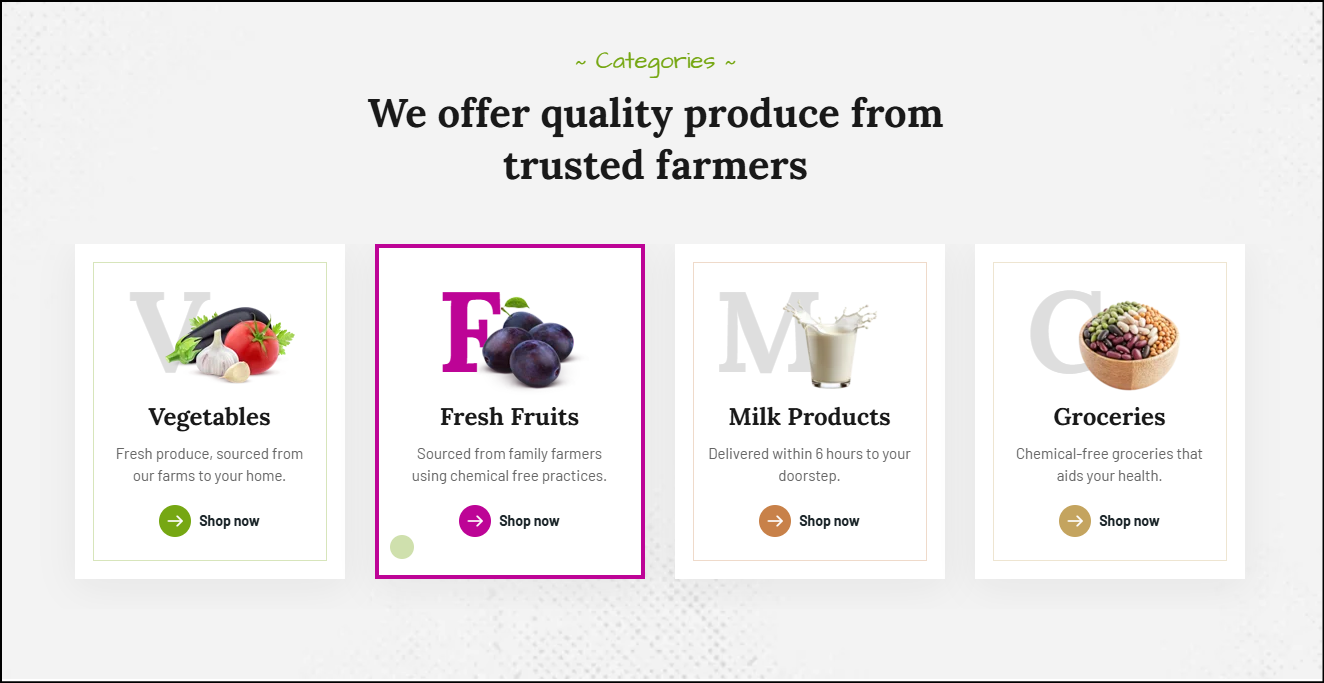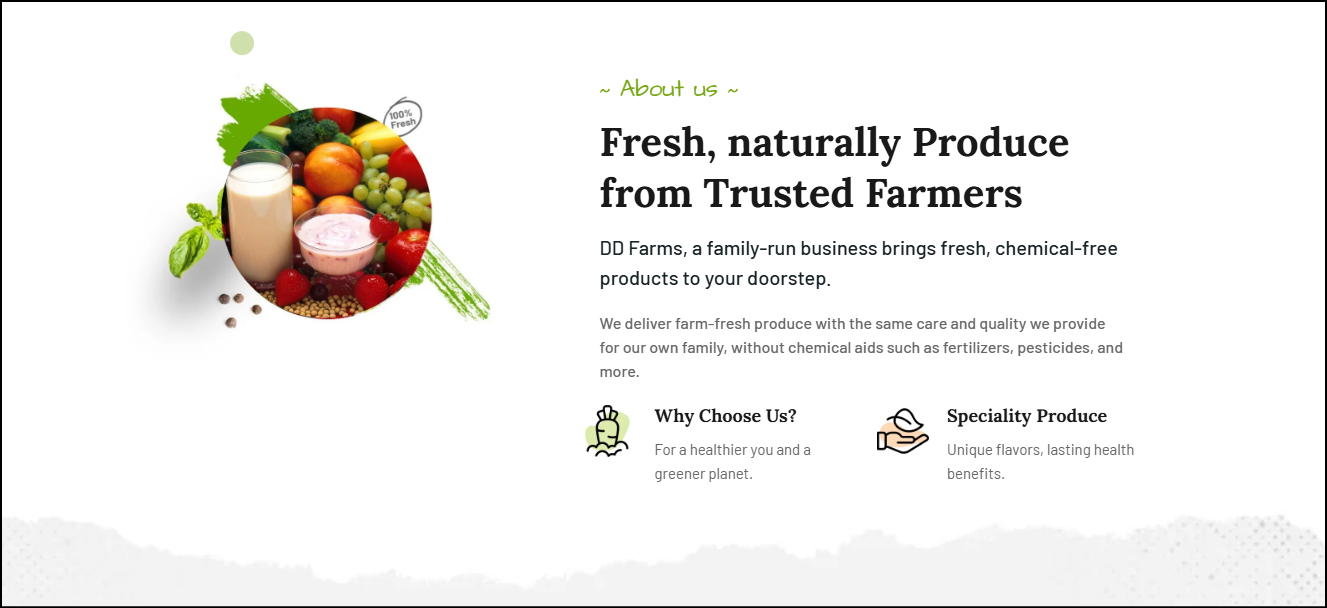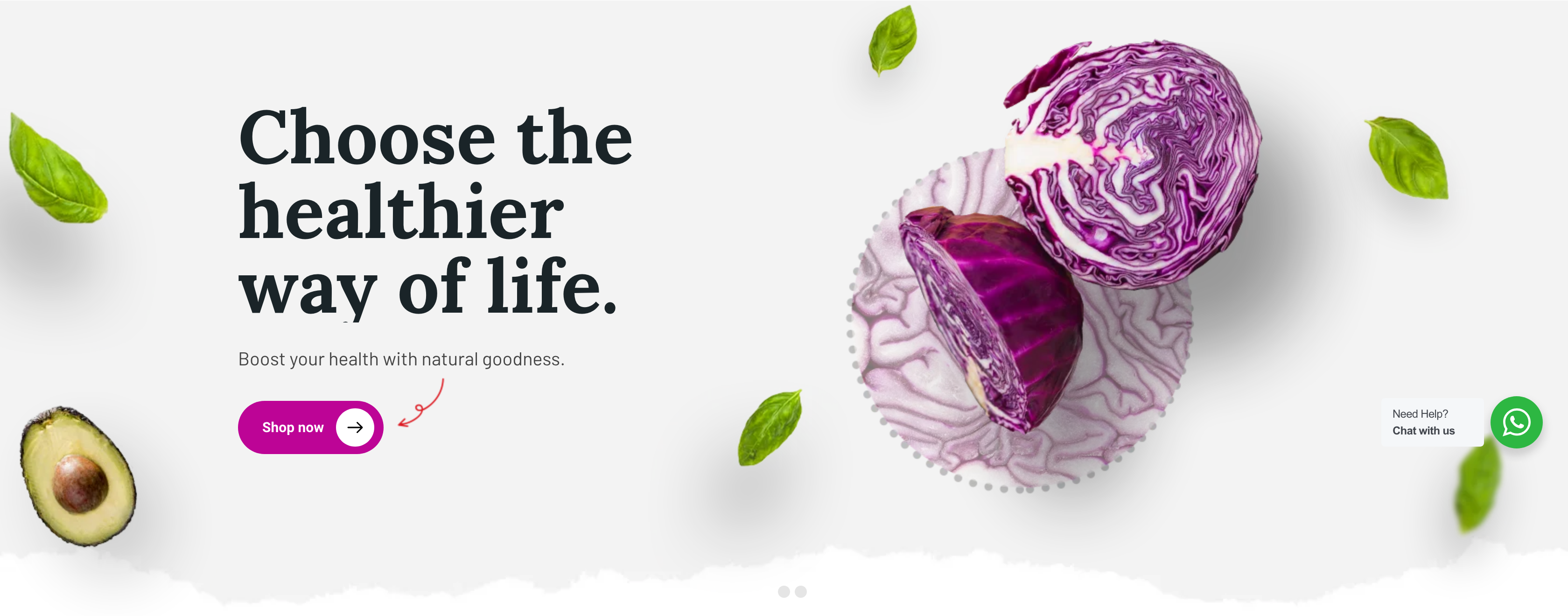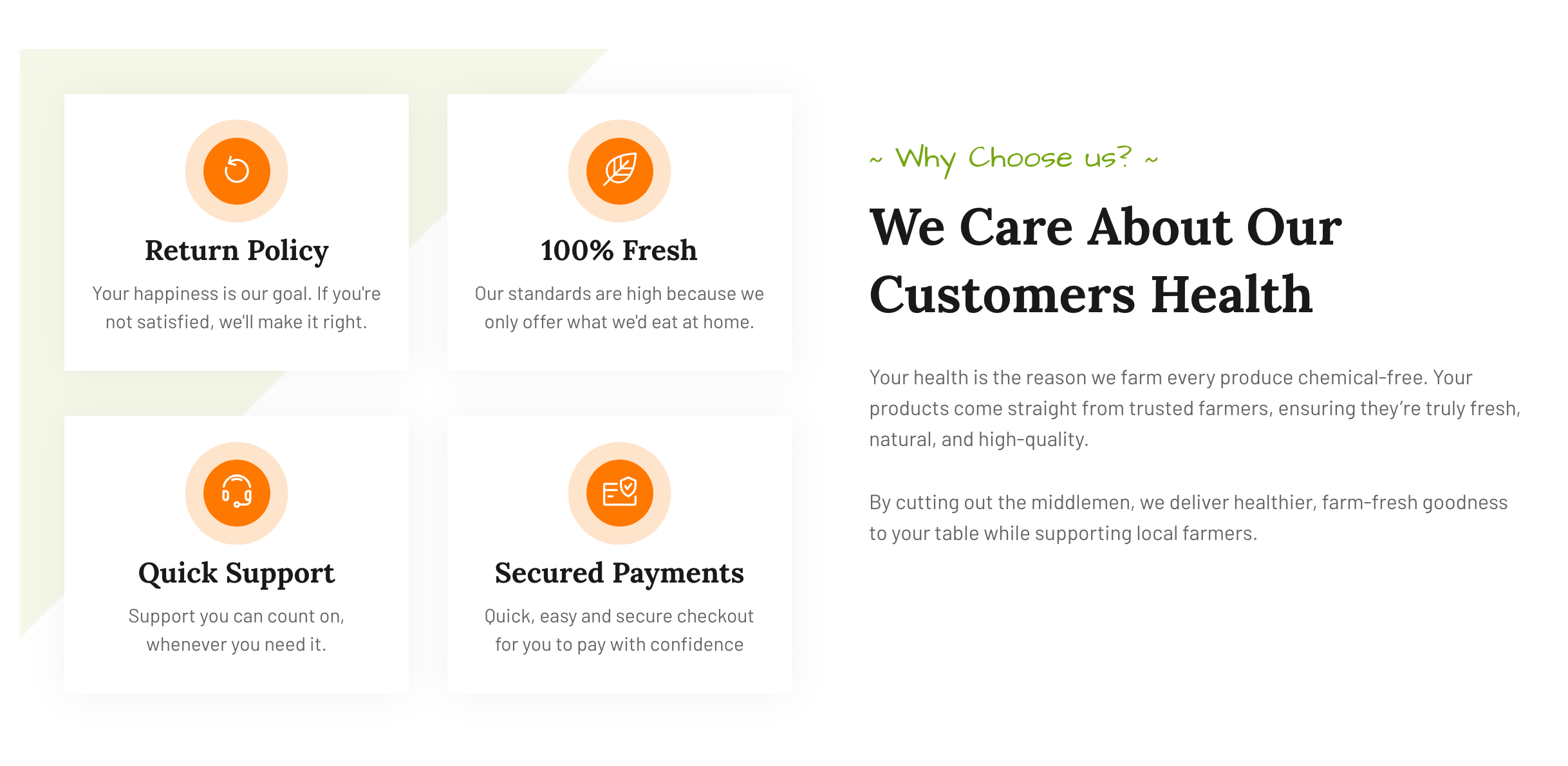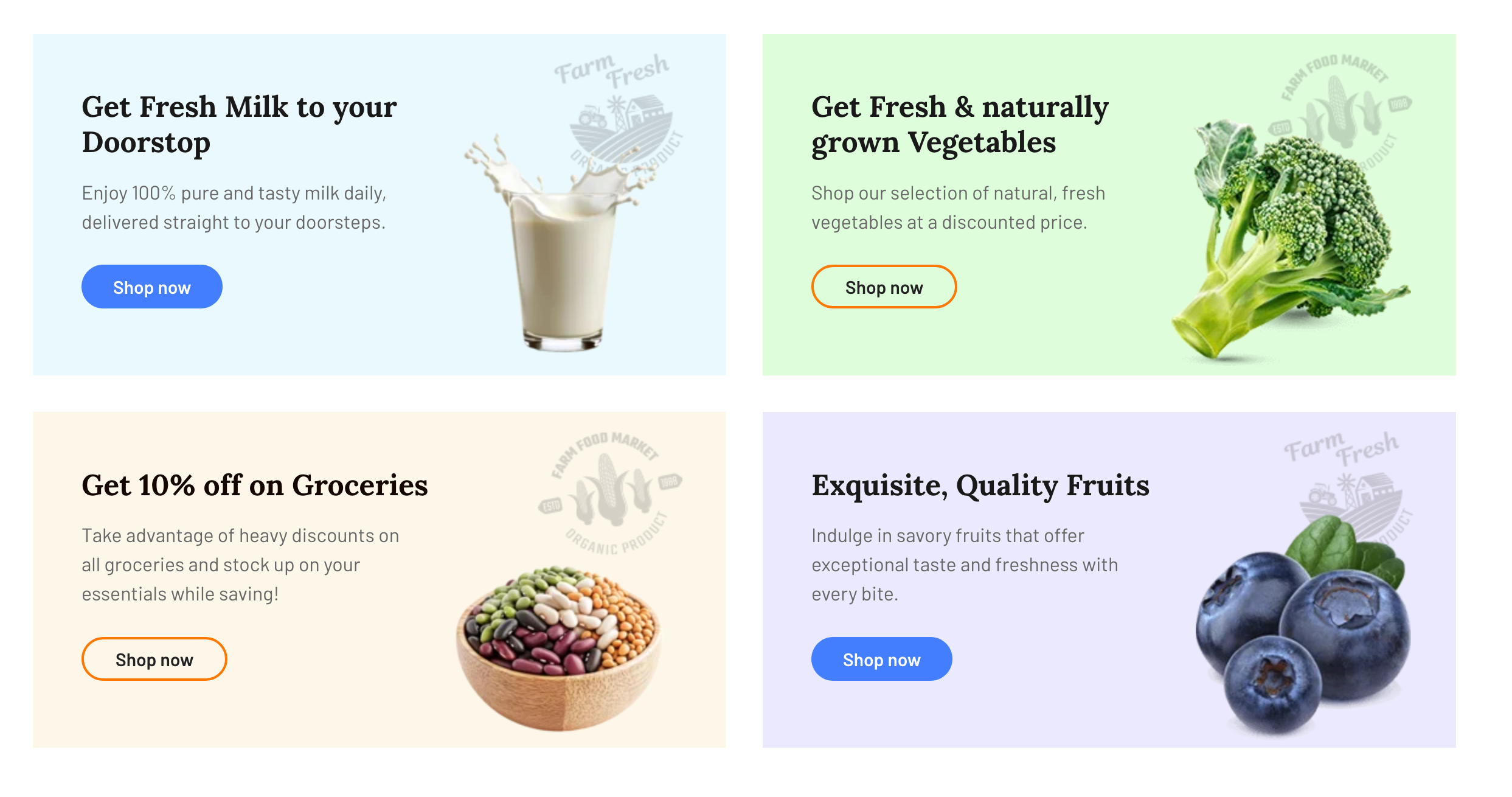Do all new brands need a custom-built website, a well-defined brand identity, and a good budget to kick-start their business?
Project Overview
Discussions that Followed the Project Approval
Mr X. told me a few things that he expected from this project. He doesn’t care about branding for just now. The focus is on generating revenue as quickly as he can. This would give him the confidence to spend more on marketing. The categories that he wants to kick off:
- Dairy – Milk, bread, butter, curd, etc.
- Groceries – Pulses, sunflower oil, rice bran oil, wheat flour, etc.
- Vegetables – Ladyfinger, cherry tomatoes, cabbage, etc.
- Fruits – Kiwi, Strawberries, Oranges, etc.
Things he told me about the brand:
- DD Farms should portray itself as an authentic brand delivering direct farm-to-home goodness to people who value health over anything
- The products that they produce on their farm are organic. However, the products they source from partner families are a mix of both.
- Competitors easily sway customers who buy milk products. Most of them never become loyalists.
- Organic products demand a premium price tag. But since the company doesn’t have the certification yet, it can’t market the products as organic just now.
- Because Mr. X is not from a business background, his KPIs are not impressions, clicks, or gross margin. KPIs that matter to him are several daily milk subscriptions (so he can manage buffaloes and cows on his farm), total sales, and total liters of milk supplied.
- So the milestone for him to scale his brand with marketing is when he reaches 500 liters of milk deliveries every day. (equates to roughly 15,000 liters of milk in a month).
- We’ve asked him to pair groceries, vegetables, and fruits with milk because customers are more likely to stick with him as a vendor. Milk alone doesn’t create stickiness. He can also make some profit from fruits and groceries. This is also easier to do because he can source all of this from nearby family-run partner farms – and doesn’t have to worry too much about keeping inventory.
Strategic Approach
- Publish an eCommerce website. Treat it as an MVP. Use online systems and third-party vendors to activate order fulfillment.
- Use your existing contacts to get a database and start door-to-door promotions of your products.
- Minimal marketing (story-led) with basic marketing collateral to get started. Scale your business with a custom brand identity on the back of initial sales momentum.
Creating a website that would help support the operations of DD farms apart from creating an online place where people can identify with the brand and place orders online.
The website can be built on WordPress and WooCommerce. It would require minimum development and would help kick off initial momentum providing prospects a place to learn about the company and customers: a place to order and a back end, for employees to carry the operations.
Project Planning
So, when the requirement to build their website became final, I broke down the project into much smaller activities and timelines. This helped me visualize what’s needed from Mr. X to get started and also gave him some assurance on what he can expect from me and when.
I’ve used a Smartsheet-provided Google Sheets template for my project planning needs. It is free and works for most of my projects. I created the project plan using that template.
| # | Task Title | Lead time |
|---|---|---|
| 1 | Required From Client | |
| 1.1 | Company Name / Brand Name | 1 Week |
| 1.2 | Brand Logo | 1 Week |
| 1.3 | Contact Details (phone, address) | 1 Week |
| 1.4 | Key people (name, designation) | 1 Week |
| 1.5 | Product details (name, photos, pricing) | 1 Week |
| 2 | Scoping | |
| 2.1 | WordPress theme research | 1 Week |
| 2.2 | Competition research | 2 Weeks |
| 2.3 | Prelim brand story | 1 week |
| 2.4 | WordPress plugins for required functionality | 2 weeks |
| 2.5 | Website pages | |
| 2.5.1 | Homepage | 2 weeks |
| 2.5.2 | About us | 2 days |
| 2.5.3 | Contact us | 2 days |
| 2.5.4 | Terms pages – 4 | 3 days |
| 2.5.5 | Shop page | 1 Day |
| 2.5.6 | Cart – checkout – categories – customer account pages | 2 days |
| 2.5.7 | Product pages | 5 pages/week |
| 3 | Design | |
| 3.1 | Ad hoc | |
| 3.2 | About us – story-led content | 1 week |
| 4 | Content | |
| 4.1 | Website service pages | 2 days/page |
| 4.2 | Product pages | 1 day/3 pages |
| 4.3 | About us – story-led content | 1 week |
| 4.4 | Terms & Policy pages – legal compliant | 3 days |
| 5 | Ongoing | |
| 5.1 | Optimise product pages with better descriptions. Use images. | 5 pages/week |
| 5.2 | User role definitions and general website security setup | 3 days |
| 5.3 | Coupon management | NA |
| 5.4 | Order notifications on WhatsApp – for vendors and customers | 1 Day |
| 5.5 | Bulk Orders info export for shipment (printable) | 1 Day |
| 5.6 | Ongoing | 2 Days |
| 5.7 | Set up site backups | 1 Day |
| 5.8 | Minimum order value (Mov) set up for non-dairy products | 4 Days |
| 5.9 | Set up subscriptions for dairy products (with business logic) | 1.5 weeks |
| 6 | Other tasks | |
| 6.1 | Suggest SOPs for back-office operations | On going |
You can access it for free here. You’re free to copy the sheet and use it however you like.
Skills Matrix
If you’re looking to do a project like this, you need these in your arsenal:
# | Skill | Required Proficiency |
1 | WordPress | |
2 | WooCommerce | |
3 | SEO | |
4 | Design | |
5 | Content (Copywriting) | |
6 | Project Management | |
7 | Coding/ Development | |
8 | Storyboarding |
Project Screenshots
Challenges, Creative Solutions & Learnings
Challenge #1 – How should the website appear?
Since the business is new, two ways are to launch a website.
First option: Show that you’re just starting, promote it as a new brand, and market accordingly.
Second option: Show that you’re an established, high-quality brand that customers already trust.
Mr. X wanted to choose the second option as this would reduce the burden on marketing and help him increase his sales from day one of launching the website.
The challenge with the second option was – how to create a website that shows an established business without fabricating social proof and claims that would otherwise be needed to show it as such.
Solution
Option 1: This would mean creating only a few folds on the homepage, where the founding story would dominate.
Option 2: This would mean creating a full-fledged CRO website along with new customer testimonials, a large product catalog, and a brand story with a problem that is not completely new but shows how the company is tackling it already with the business that it is already doing.
The easiest way I felt, would be to upload the full catalogue. It should be okay to show out-of-stock items which would portray that the brand generally deals in all such products. This also aligns with the overall nature of business since many fruits and vegetables are seasonal and the company won’t supply them if they aren’t fresh.
Another element of this implementation would be the home page. Rather than focusing too much on the founding story, the homepage has dominating elements of a good shopping experience. The folds help people to quickly shop for products in the categories they choose.
Hero fold has the “feel good” factor along with the copy that portrays what the company stands for. The later folds also tap into what the company is and showcase its values, mission, and vision. This is done by pairing visuals with copy that tells a story.
Challenge #2 – How do you retain customers who purchase milk products?
Currently, Mr. X only sells milk and milk products. Since the brand is new and because of the nature of the products, it’d be challenging to retain customers longer and increase the company’s LTV.
It is a known phenomenon in this industry and segment to see customers move to another brand based on their first trial of the product. Even when they’re completely sold on the credibility of the company, they can switch easily based on pricing and quality among other things.
Solution
While many factors affect customer’s retention of milk and milk products – delivery times, variations in color, odor, and consistency, there is a potential solution that might give them a reason to stay.
Assuming a customer is satisfied with the above factors – it’s going to be hard for them to leave a vendor if they depend on that vendor for their other pains as well.
So, we looked at what we have right now in terms of core capabilities and what customers generally buy along with milk and milk products. By pairing it with a few value-adds, we can develop a core competency that other brands might find hard to compete with.
What we have:
- Logistics solution to deliver products timely
- An online place for customers to choose and buy stuff (website).
- Direct farm-to-home delivery
- A well-established network of partner farms that are also run on similar values as DD Farms.
- Opportunity for having Just-in-time inventory from other nearby farms.
Value adds:
- Portal and dashboard for customers to manage their subscriptions and orders.
- Chat directly with support at every point of their interaction with the brand.
What customers generally buy with milk:
- Other perishable items such as vegetables and fruits.
- They pair it with other grocery items such as spices, rice, bread, and eggs. Sample grocery list of an average Indian consumer.
We suggested that along with the value adds that we’ll develop, Mr. X can start selling groceries, vegetables, and fruits that can be sourced from partner farms. It can be done on a simple commission basis without needing to store inventory at his farm.
Because customers generally buy groceries along with milk, DD farms can cross-sell items using the website. And because customers would depend on DD Farms for groceries delivered timely, they would be less inclined to start their milk subscription from somewhere else.
A sneak peek into the website before final delivery
Everything That Was Needed For This Website
- Domain & Hosting (Purchased from Hostinger on behalf of client)
- WooCommerce
- WordPress & a WP Theme
- WordPress Plugins:
- Razorpay integration
- Contact form 7
- Elementor (free version)
- Mailchimp for WordPress
- Rank Math SEO
- Slider Revolution
- Updraft plus (For taking site backups)
- WP Chat App (For WhatsApp integration)
- Wordfence for security
- Shortcodes for Elementor
- WPCode Lite
- WooCommerce plugins
- Variation Swatches for WooCommerce
- WooCommerce Min/Max Quantities
- WooCommerce Product Tabs (Free)
- WPC AJAX Add to Cart for WooCommerce
- WPC Product FAQs for WooCommerce
- WPC Smart Quick View for WooCommerce
- WooCommerce Customer/Order/Coupon Export
- Google Workspace plan for creating custom email addresses
Learnings
- Learned how to optimise WooCommerce product pages
- Discovered adding Custom Section Blocks in WooCommerce Product Pages
- Learned about Actions and Filter hooks In WooCommerce
Like what you see? Connect with me on Linkedin or add your opinion in the comments below.

